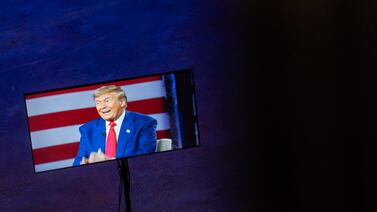The Illinois State Board of Education is hoping to increase funding for career and technical education and early childhood programs — but an uncertain economy could hinder those plans.
State board members are considering how much money to give K-12 schools, early childhood education, career and technical education, and other programs as they work on a budget recommendation for the 2024 fiscal year. On Wednesday, state finance officials from the Commission on Government Forecasting and Accountability said that Illinois’s economy is in a good place, but there are still concerns about an economic slowdown or recession in 2023.
School districts must decide how to spend emergency COVID funds by a federally-imposed fall 2024 deadline. After federal funds run out, some districts may be scrambling to pay for programs created during the pandemic and increased staffing. However, according to a newly published spending dashboard, districts still have more than half of the pandemic relief money to spend.
The state’s K-12 education budget remained flat during the first year of the pandemic. In 2021 and 2022, the state increased funding by $350 million, the minimum amount required under the evidence-based funding formula. Though advocates have praised the state for increasing funding, they also have said it won’t be enough to adequately fund all public schools by 2027.
A statewide coalition of education advocates called The Partnership for Equity and Education Rights Illinois, or PEER IL, said in September that the state would have to increase funding by about $1.5 billion a year for the next five years to fully fund schools. If that doesn’t happen, the group said, the next generation of students will continue to go to under-resourced schools.
Money for the early childhood block grant, which pays for preschool programs across the state, did not increase in 2020, 2021, or 2022. But it received a 10% boost in the state’s 2023 budget. Early childhood education advocates hope the state puts more money into early education to help provide low-income families access to child care and increase wages for preschool teachers and caregivers.
The Chicago Early Childhood Workforce Partnership Employer Council found that early childhood educators are paid $18,000 less on average than elementary school teachers, despite having the same degrees. The wage gap is even larger for educators of color, almost 4% when compared to white educators.
Robert Wolfe, the state board of education’s chief financial officer, said at Wednesday’s board meeting that there is a need to increase state funding for career and technical education as the program has not seen a significant increase for almost two decades. During the budget hearings in October, school advocates asked for a $40 million increase.
Wolfe said he doesn’t know if a $40 million increase is possible, but thinks an increase in funding is important. Board members agreed with him, but asked for data to prove to state lawmakers that the program will need more funding.
State Superintendent Carmen Ayala, who is set to retire at the end of January, is expected to provide a budget recommendation to the board on Jan. 18. If approved, it will be sent to Gov. J.B. Pritzker, whose administration is working on a full state budget proposal to present to the state legislature on Feb. 15. The state legislature must pass a budget by late May.
Samantha Smylie is the state education reporter for Chalkbeat Chicago, covering school districts across the state, legislation, special education, and the state board of education. Contact Samantha at ssmylie@chalkbeat.org.





